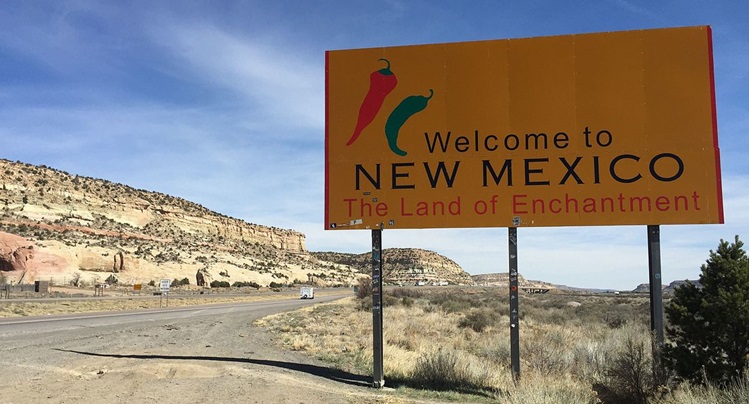In New Mexico, five casino-operating tribes have reportedly filed a federal lawsuit in an attempt to thwart an effort by the western state to retroactively collect approximately $40 million in revenue-sharing payments tied to free-play credit incentives.
According to reports from the Albuquerque Journal and The Santa Fe New Mexican newspapers, the federally-recognized Pueblo of Isleta, which is responsible for the Isleta Resort Casino on the outskirts of Albuquerque, filed the action with the United States District Court for the District of New Mexico in Santa Fe late last month after the state claimed it was owed about $10.3 million from such inducements under the tribe’s now-expired 2007 gaming compact.
The Pueblo of Tesuque, which runs the Camel Rock Casino located some ten miles north of Santa Fe, and the Sandia Resort and Casino-operating Pueblo of Sandia subsequently joined the action as plaintiffs after the state reportedly demanded that they hand over around $3.2 million and $26.5 million respectively that was tied to free-play credit incentives under the same now-finished agreement.
The Pueblo of Santa Clara, which is responsible for the Santa Claran Hotel Casino positioned some 20 miles north of Santa Fe, moreover later signed up as a plaintiff as did the band behind the Santa Ana Star Casino, the Pueblo of Santa Ana.
The lawsuit against Governor Susana Martinez along with three members of the New Mexico Gaming Control Board including Chairman Jeffrey Landers is reportedly asking the court to rule that the state’s attempt to collect revenue-sharing funds tied to free-play credit incentives under the 2007 gaming compacts is illegal.
Free-play credits are often given to casino patrons in order to incentivize them to enjoy slots and New Mexico gaming officials reportedly believe these should be included when calculating the overall amount a tribe must hand over to the state as part of its revenue-sharing agreement. But, the plaintiffs are set to argue that this practice violates generally accepted accounting practices and is like charging tax on the full price of a shirt that has been sold at a discount.
“By unilaterally requiring that free-play credits be treated as revenues, the defendants are imposing an exaction on each Pueblo’s use of free-play that violates the per se rule of federal law that bars state taxation of an Indian tribe unless Congress has authorized such taxation in terms that are unmistakably clear and the Indian Gaming Regulatory Act, which provides that a state may not “impose any tax, fee, charge or other assessment upon an Indian tribe” under a tribal-state compact,” reads the defendants’ complaint.
The tribes are reportedly moreover set to argue that revised gaming compacts they inked with the state in 2015 had been approved by the United States Department of the Interior, which expressly determined that the charging of tax on free-play credit incentives was illegal.
“The [Secretary for the United States Department of the Interior’s] determination is correct and as a result of the Secretary’s determination, the 2015 compact is not effective to preserve the defendant state officials’ free-play claim under the 2007 compact nor does the 2015 compact provide the defendant state officials’ a means of pursuing that claim,” reads the complaint.
The tribes reportedly told the Law360 legal news service that they had reluctantly filed their action, which is known as Pueblo of Isleta et al v Martinez et al, after the New Mexico Gaming Control Board “resurrected” a claim it first raised in 2011 but later dropped that the groups must hand over revenues associated with free-play credit incentives.
“The [New Mexico] Gaming Control Board’s last-minute decision to resurrect these claims before they would be barred by a contractual limitations period and to have them arbitrated as if they were ordinary contractual payment dispute[s] ignores fundamental principles of federal law and an unambiguous determination by the Assistant Secretary of Indian Affairs,” read a joint statement from the Pueblo of Isleta, Pueblo of Tesuque and Pueblo of Sandia. “Thus, the three tribes filed this lawsuit for declaratory and injunctive relief to stop the [New Mexico Gaming Control Board’s] efforts to assert this claim, which is inconsistent with the Indian Gaming Regulatory Act, and to put an end to this matter once and for all.”



